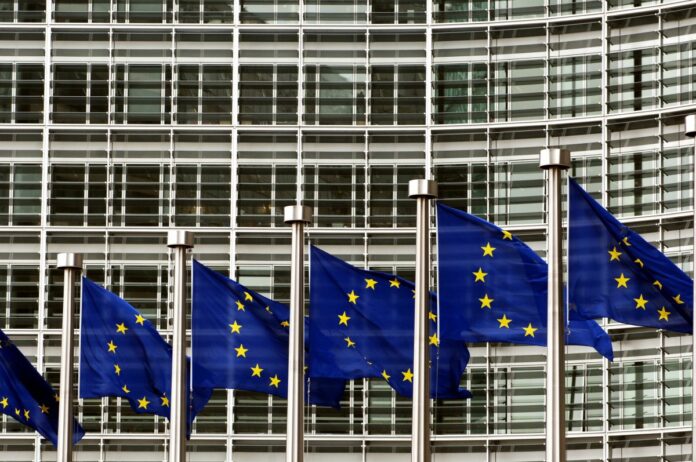
LA VALLETTA (MALTA) (ITALPRESS/MNA) – Malta has been formally warned by the European Commission over its excessive budget deficit.
The European Commission also reiterated its call for Malta to end its energy subsidies as well as take other measures to tackle a severe shortage and mismatch of skills, ease traffic congestion and increase renewable energy.
Warnings over budget deficits were also issued against Belgium, France, Italy, Hungary, Poland and Slovakia. Romania was accused of having failed to heed previous warnings.
“In light of this assessment, and after considering the opinion of the Economic and Financial Committee, the commission intends to propose to the council to open excessive deficit procedures for these member states in July 2024,” the EU executive said.
“Longstanding structural challenges are holding back the EU’s competitiveness,” EU Commissioner Valdis Dombrovskis said in a statement.
“We look forward to receiving national fiscal structural plans from member states that bring down debt and deficit and reflect today’s recommendations.”
For decades, the EU has set out targets for member states to keep their annual deficit within 3% of Gross Domestic Product and overall debt within 60% of output.
The Commission noted that Maltàs general government deficit decreased from a deficit of 5.5% of GDP in 2022 to a deficit of 4.9% in 2023, while the general government debt fell from 51.6% of GDP at the end of 2022 to 50.4% at the end of 2023. According to the fiscal policy guidance for 2024, the Commission is taking the first step for the opening of deficit-based excessive deficit procedures on the basis of the 2023 data.
The Maltese government has repeatedly defended its position, arguing that the deficit is falling as the economy grows.
The Finance Minister has insisted that the gap will continue shrinking by 0.5 percentage points each year up to 2026 in line with the Economic Governance Framework agreement reached between EU finance ministers last January.
The Commission called on Malta to submit the medium-term fiscal-structural plan in a timely manner and to keep the general government debt at a prudent level over the medium term in line with EU treaties.
It again urged Malta to “wind down the emergency energy support measures by the 2024/2025 winter” and address remaining aggressive tax planning risks, introduce a withholding tax on outbound payments or equivalent defensive measures, and amend rules on non-domiciled companies.”
Prime Minister Robert Abela had warned ahead of the EU elections earlier this month that Malta would not lift the energcy subsidies’ whatever the EU said.”
The commission also urged Malta to continue with the swift and effective implementation of the recovery and resilience plan, including the REPowerEU chapter, ensuring completion of reforms and investments by August 2026.
Malta was urged to strengthen the quality and labour market relevance of education and training to address low educational outcomes as well as the severe shortage and mismatch of skills, in particular by fostering basic skills of students and the professional development of teachers.
Malta was also urged to accelerate the deployment of renewable energy through large-scale projects as well as small-scale investments in direct energy production and consumption.
A call was made for Malta to address traffic congestion by improved quality and efficiency of public transport and step upinvestments in ‘soft mobility’ infrastructure.
The news comes just after the European election campaign when Prime Minister Robert Abela pledged income tax cuts for lower middle income earners in the forthcoming budget.
“The government takes note of the draft Country Specific recommendations and Country Report, issued by the European Commission, which highlight the achievements obtained together with the remaining and emerging challenges,” the statement reads.
However, the statement makes no reference to the phasing out of blanket energy and fuel support, which is costing public coffers in excess of 300 million annually.
Instead, the government said it was accelerating the green transition with four new calls for investments in larger renewable energy systems. It also noted that a second electrical cable interconnection between Malta and Sicily is slated to be commissioned by the end of 2026.
Government said it remains committed to effectively implementing the Recovery and Resilience Plan, including the REPowerEU Chapter, the statement added. “The implementation of this plan will tackle areas addressing the green and digital elements, as well as reforms in other sectors.”
On the need to bolster the education system, the government said the new National Education Strategy (2024-2030) is based on the pillars of wellbeing, growth and empowerment and equity and inclusion.
Reacting to the Commission’s assessment on the transport situation, government said significant investment has been directed towards improving transportation infrastructure, including both major and urban road networks, upgrades to the inner-harbour ferry system and the promotion of alternative eco-friendly commuting options. The extension of the free public transport to all led to an increase in the usage of this service, the government added.
It said the Commission noted that Maltàs economy will continue to outperform other Member States in 2024 and 2025. This growth is expected to be driven by net exports and private consumption.
– Foto: Agenzia Fotogramma –
(ITALPRESS).













